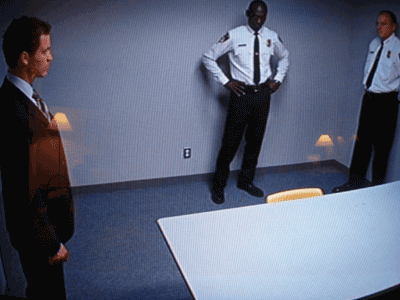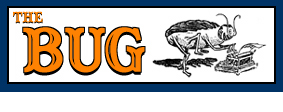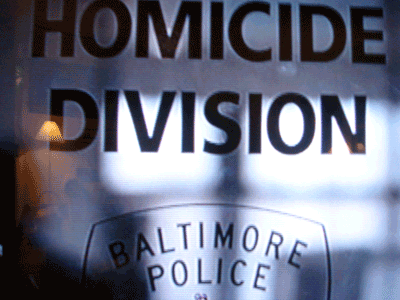 The Wire, 2002-2008. Created by David Simon. Starring Gbenga Akinnagbe, Chris Bauer, Keenon Brice, Al Brown, Robert F. Chew, Chad Coleman, Jermaine Crawford, John Doman, Steve Earle, Idris Elba, Frankie Faison, Aidan Gillen, Seth Gilliam, Larry Gilliard Jr., Anwan Glover, Wood Harris, Jamie Hector, Clark Johnson, Hassan Johnson, Domenick Lombardozzi, Deirdre Lovejoy, Thomas McCarthy, Julito McCullum, Felicia Pearson, Clarke Peters, Wendell Pierce, James Ransone, Lance Reddick, Andre Royo, Amy Ryan, Pablo Schreiber, Sonja Sohn, Jim True-Frost, Glynn Turman, Dominic West, Tristan Wilds, Delaney Williams, J.D. Williams, Michael K. Williams, Robert Wisdom, and a cast of many dozens more.
The Wire, 2002-2008. Created by David Simon. Starring Gbenga Akinnagbe, Chris Bauer, Keenon Brice, Al Brown, Robert F. Chew, Chad Coleman, Jermaine Crawford, John Doman, Steve Earle, Idris Elba, Frankie Faison, Aidan Gillen, Seth Gilliam, Larry Gilliard Jr., Anwan Glover, Wood Harris, Jamie Hector, Clark Johnson, Hassan Johnson, Domenick Lombardozzi, Deirdre Lovejoy, Thomas McCarthy, Julito McCullum, Felicia Pearson, Clarke Peters, Wendell Pierce, James Ransone, Lance Reddick, Andre Royo, Amy Ryan, Pablo Schreiber, Sonja Sohn, Jim True-Frost, Glynn Turman, Dominic West, Tristan Wilds, Delaney Williams, J.D. Williams, Michael K. Williams, Robert Wisdom, and a cast of many dozens more.
You can hold back from the suffering of the world, you have free permission to do so, and it is in accordance with your nature. But perhaps the holding back is the one suffering you could have avoided. –Franz Kafka
In season five of The Wire, Bubbles (Andre Royo), a recovering heroin addict, is handed a worn slip of paper by his Narcotics Anonymous sponsor Walon (Steve Earle). Written on the scrap, no doubt in a barely legible hand, is the above quote. Neither Bub nor Walon know shit about Franz Kafka, but it doesn’t matter. They understand what he was saying, are moved by the words, and we know that that paper, worn soft over years of reading and rereading, will change hands yet again. For Bubs will not hold back, he will lend himself to the suffering. And if we’re lucky, we watch The Wire, and will not hold back from the suffering ourselves.
Baltimore is the tragic hero of this series, which ran from 2002-2008, with 60 episodes broken up over five seasons. Within each season there was new focus: season one examined the drug trade, season two took on the plight of the working class (specifically the Baltimore stevedores), season three was about the political machine, season four (perhaps most heartbreaking) the school system, and season five the media, including time spent filming in the Baltimore Sun.
Creator David Simon loves his city, and it shows. But this is not Woody Allen’s Manhattan, no, it is something altogether different. The Wire is not a hue and cry, a chestbeating propaganda piece, but it is an angry, frustrated, and terribly depressing show, with an almost holy respect for every character, from the stars of the show to some guy mumbling a single line. The Wire, it has been said, is like a novel, perhaps a Tolstoy novel, with its many, many characters and plot lines, of which most do not have a real sense of closure. As a writer, I am utterly amazed at the depth of each and every person on this show. There are no flashbacks in The Wire, no clumsy introductions as one would usually see onscreen, a need to add quirk to a character just to make them stand out. No, you’re watching Baltimore, seething, ramshackle, hungry Baltimore, whose people are struggling to survive, from the wealthiest to the most destitute.
Honestly, it kills me that this television show is not about Detroit. I imagine that Detroit missed out because no one cares enough to make a show about a city that’s in even worse shape than Baltimore. But I’m also guessing that there are concerned citizens and former-citizens (or outstate wannabes like myself) from Newark or Gary or Cleveland who feel the same way. The Wire could not be about New York or Chicago, as it would have to be about those cities that utterly lack glamor, that are constantly the butt of jokes, cruel jokes, that only serve to pour salt in the wound of a city that still has scores of living, breathing people in its borders. Like Baltimore.
Each season of The Wire began slowly, allowing the viewer to learn about this environment, the cops, the criminals, every one else. This all comes at you like life itself, without flashback or repetition–you cannot, under any circumstances, enter in the middle, instead you have to start at Season One, and do not pass ‘Go’. Simon and Co. allow the details to build, slowly, and there’s a million of them.
We begin to learn the complexities of the drug trade as the cops do, from a distance, through the wires of surveillance. Then we witness it in effect firsthand, when the camera takes us deep into the world of the dealers. In these neighborhoods, the poor live and breathe around the dealers. Never in my life have I seen poverty portrayed with such honesty. Television has never come close, but even in movies, the poor are typically condescended to or cleaned up. The reason it works here is because of restraint: Simon never shoves it in your face, there’s no roaches climbing over babies, no close up of men eating out of garbage. It’s in the background, as when we see Omar (Michael K. Williams), a man who robs drug dealers of perhaps literally millions of dollars, living in an abandoned brownstone with boards on its windows, sleeping on a bed without a frame, and wandering outside with a gun drawn (and having to have pushed past a board in order to exit his place.) Or Bubs, again, hanging out in an emptied garage, his electricity provided by a pirated connection to a nearby pole (which you would only know if you’d paid attention to the building as he walks up–you can see the makeshift power line.) The latter is a reflection, too, of Simon’s great respect for his characters, and his audience. Nothing, absolutely nothing, is telegraphed here.
There’s no long screed about politics, about corruption, against Republicans or Democrats. Everything is shown, without the usual didacticism that mars similar noble efforts. His poor, like Bubs, are incredibly resourceful, despite their addictions or their environment. Bubs makes money pushing a cart around, selling t-shirts and candy to addicts and dealers alike. The dealers’ complex business is a marvel of efficiency, moreso in fact than the police or politicians, who cannot make changes in the city without a warehouse of red tape, broken promises, and backroom deals.
I’ve also never seen children handled so well. The kids here are not moppets, but real kids, intelligent, angry, capable. They swear, smoke, steal, and kill. Season four, following the likes of Dukie (Jermaine Crawford), Michael (Tristan Wilds), and others, was too intense for my wife, a teacher, to endure. These kids don’t possess dewy eyes and a submissive personality. They’re wielding guns and selling drugs by seventh grade, and Dukie, whose life is worse even than the rest of his clan (he is essentially homeless), shows us some hope: he is a computer whiz, a favorite of his teacher, and able. But high school ruins him, he ends up on the streets, shooting up just like everyone else. Our hope, then, is that he becomes like Bubs, recovering and trying to help the other poor souls with too much dope in their veins, and no sense of a future.
The Wire examines all the decay, and it could almost be said to be a show about the “end” of things: urban life, stevedores (whose docks are being turned into high-priced condos that no one who actually lives in Baltimore can afford), public schools, newspapers. And it is to Simon’s credit that no character is spared. The cops are at the end of their collective ropes, good people driven to lie, to cook the numbers, to create murders from accidental deaths and vice versa when the need arises. The teachers, exhausted, feeling under-appreciated and underpaid, rotely drill the children so that they can pass No Child Left Behind, and get the school its money so that it can begin the process all over again the next year. The head of the stevedores union willingly imports drugs and prostitutes in order to fund the union’s payrolls and benefits funds. The newspapers bend the truth to win Pulitzers. Drug dealers come and when they go, they’re replaced by someone smarter, someone worse and more destructive. And even when they try to leave the trade, they’re ruined.
McNulty, Bunk, Bubbles, Prez, Stringer Bell, Omar, Marlo Stanfield, Griggs, Freamon, Barksdale, Prop Joe, Wee Bey, Snoop, Dukie, Levy, Walon. The docks, the bars, the Sun, Homicide, Eastside, Westside, City Hall, the alleys and schools and playgrounds. An old garage turned into a gym. A dilapidated garage turned into a home. A home turned into a soup kitchen.
This is Baltimore, and here is its people. That’s the Kafka quote, friends. That these men and women, even the drug dealers and criminals, have decided not to hold back from the suffering, to fight and struggle and belong. Trying to make the city–and by extension, the world–into a place worth living, even if it is misguided.
Ask yourself: where is your Baltimore? In San Francisco, Detroit, Minneapolis, small towns and large, country and city, look around: wherever it is you call home, holding suffering at bay is perhaps one suffering you can avoid.

